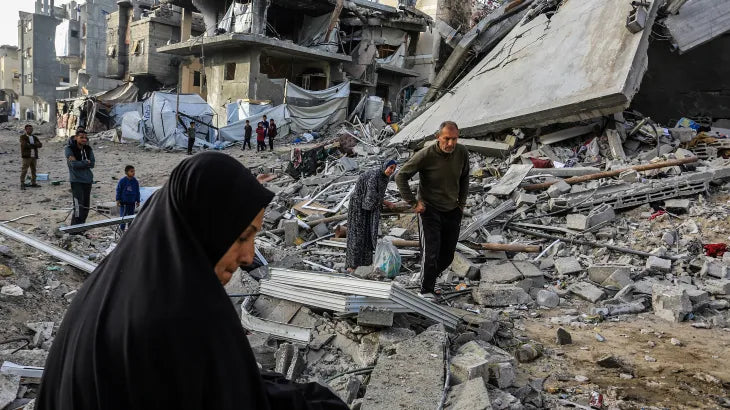Gaza

Gaza: A Humanitarian Crisis the World Cannot Ignore
Summary:
Palestinians have lived in the land of Palestine for centuries.
Colonialism and war forced over 700,000 Palestinians into exile in 1948.
Gaza became a refuge for millions, who have faced ongoing hardships due to blockade and conflict.
Hamas, founded decades later during an uprising against occupation, emerged from this displacement. Its violent actions have been rightly condemned worldwide.
Decades of displacement and blockade have created extreme humanitarian suffering.
Standing with Palestinians today means standing for peace and basic human rights.
Free Palestine.
We advocate for dignity, freedom, and the protection of human life everywhere.
We stand with the innocent people of Palestine and all communities suffering from violence, hunger, and displacement.
A Homeland Before Conflict
Palestinians have lived in the land of Palestine for centuries, under various empires, including the Ottoman Empire, and later, the British Mandate. This history was disrupted by conflicting promises during and after World War I, which led to tensions over control of the land.
World War I and the British Mandate
After the defeat of the Ottoman Empire, Britain assumed control of Palestine. Conflicting promises were made to both Arab leaders (support for independence) and Zionist leaders (support for a "national home for the Jewish people").
World War II and the Push for a Jewish Homeland
The Holocaust increased global support for a Jewish homeland in Palestine, which led to increased Jewish immigration. Meanwhile, Palestinians continued to face discrimination, being denied full recognition as a sovereign nation.
The United Nations Partition Plan (1947)
In 1947, the UN proposed a Partition Plan to divide Palestine into Jewish and Arab states, with Jerusalem under international control. While Jewish leaders accepted the plan, Palestinian Arabs and neighboring Arab states rejected it, arguing the plan unfairly favored the Jewish minority.
The Nakba and the Refugee Crisis
In 1948, after Israel declared independence, over 700,000 Palestinians were displaced during the subsequent war, known as the Nakba ("the catastrophe"). Israel controlled 78% of historic Palestine, displacing Palestinians into refugee camps or areas like Gaza and the West Bank.
Gaza Refugees
Gaza became home to generations of Palestinian refugees, trapped under blockade, poverty, and ongoing conflict. Today, Gaza remains one of the most densely populated regions, with over two million people, the majority of them children, living under siege conditions.
The Rise of Hamas and Continued Occupation
In 1987, during the First Intifada, Hamas, a militant group founded with the uprising against Israeli occupation, gained some support from Palestinians. However, its violent actions have caused immense harm and led to it being labeled a terrorist organization by many countries, including the U.S. and EU. Hamas’ violence against civilians is never okay.
Hamas does not represent Palestine. Most Palestinians want to live in peace, free from violence, political division, and conflict. Palestinians currently face internal challenges, with leadership divided between the Palestinian Authority in the West Bank and Hamas in Gaza.
Blockade and the Isolation
After Israel withdrew its ground troops from Gaza in 2005, Gaza remained under a strict blockade. When Hamas took control in 2007, the blockade intensified, further isolating the region and worsening the humanitarian crisis.
What’s Happening Now?
In 2024 and 2025 alone:
Nearly 90% of Gaza’s population has been displaced from their homes.
More than 52,000 Palestinians have been killed, the majority of them women and children.
The northern part of Gaza faces official famine, according to the United Nations.
Hospitals, schools, and refugee camps have been bombed or shut down.
Humanitarian aid remains severely restricted at entry points, causing extreme shortages of food, water, electricity, and medical supplies.
International organizations like the United Nations, Red Cross, and World Food Programme have declared the situation a catastrophe — one that threatens the very survival of millions of innocent civilia
This ongoing crisis demands immediate global action to ensure that innocent lives are protected and supported.
What We Can Do
Stay informed through reliable sources and raise awareness.
Supporting organizations delivering emergency aid to Gaza, such as UNRWA, Save the Children, and Doctors Without Borders.
Use our voices to speak up for the protection of civilian lives and humanitarian access.
Sources:
UN Partition Plan (Resolution 181, 1947) – United Nations Archives
Nakba and Palestinian Refugees – UNRWA and United Nations reports
Balfour Declaration (1917) – UK National Archives
Sykes-Picot Agreement (1916) – British Library and History.com
Hamas Formation – Encyclopedia Britannica; U.S. State Department
Gaza Humanitarian Crisis 2024–2025 – UN OCHA Situation Reports; World Food Programme Updates
